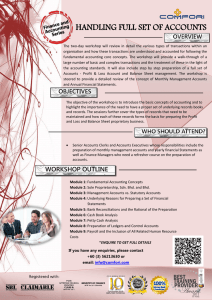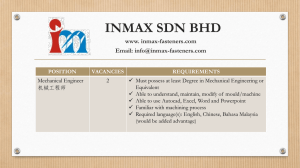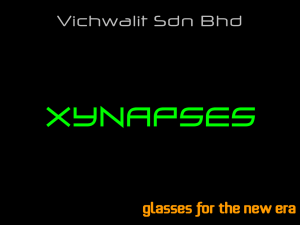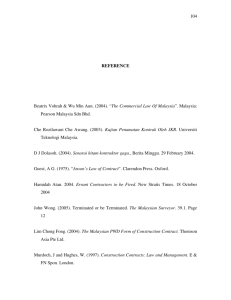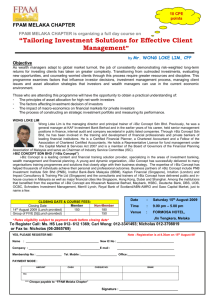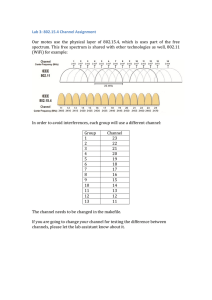MALAYSIAN SPECTRUM LICENSING FRAMEWORK
advertisement
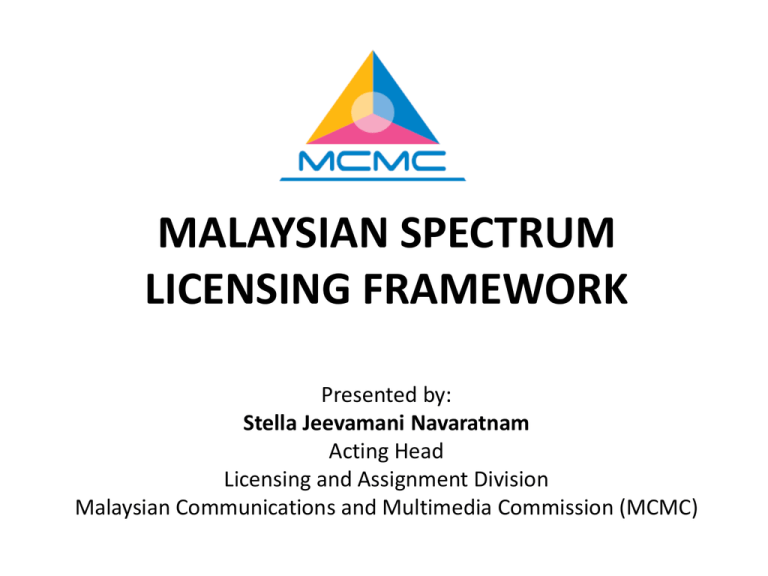
MALAYSIAN SPECTRUM LICENSING FRAMEWORK Presented by: Stella Jeevamani Navaratnam Acting Head Licensing and Assignment Division Malaysian Communications and Multimedia Commission (MCMC) BACKGROUND Malaysian Communications and Multimedia Commission (MCMC) • Established in 1998. • Body that regulates the communications and multimedia industries in Malaysia. The Communications and Multimedia Act 1998 (CMA 1998) is the main legislation that regulates the converging Communication and Multimedia industries. The powers, which have been given to the Commission enable it to carry out its tasks in accordance with CMA 1998. 2 Laws and Guideline International International Framework National Spectrum Plan (SP) Standard Radio System Plan (SRSP) Malaysia Notification Guidelines International Telecommunication Union (ITU) Spectrum Plan Eg : Microwave , Broadband Wireless Access etc. Issuance of Class Assignment. •CMA 1998 •Regulations Eg : Apparatus Assignment (AA), Trial, Amateur etc. Standard Operating Procedure (SOP) 3 National Spectrum Plan Spectrum Plan • Requirement under Section 172 of CMA 1998: - Commission may develop a spectrum plan. - Made available to the public. • Aligned with ITU requirements for Region 3. 4 Standard Radio System Plan Information on requirements to use specified frequency bands. – Specific frequency bands • e.g. Frequency 2500 to 2600MHz – Technical characteristics • e.g. Transmit power – Frequency channelling • e.g. 5MHz per sub-block – International border coordination • e.g. 50km from neighbouring countries – Principles of assignment • e.g. Who can apply • e.g. Holder of Network Facilities Provider Individual (NFP(I)) license 5 Type of assignments for spectrum 1 2 3 6 Spectrum Assignment (SA) SA for 3G Example of Spectrum Assignments Rights to use a specified band/s. Spectrum Assignments were issued either via tender/auction/ fixed price. For a period of up to 20 years or lesser. 7 Apparatus Assignment (AA) Rights to use a specified spectrum to operate a specified kind of network facility. Fixed price by application on first come first serve basis. Assignment period of up to 5 years or lesser. 8 Why the need to apply for an AA ? • • • • • Spectrum management is a central activity of Radio Authority. Efficient and effective Spectrum Management. Sharing the resources. To monitor the resources usage. Information for frequency interference solution and mitigation. • Information for re-farming and future resource planning. • Threat to safety due to incorrect use of frequencies. • Compliance with technical standard requirements. 9 Class Assignment (CA) Rights to use any frequency/band for a specified purpose. No fee and no registration to use. Subject to the conditions. Latest document available in MCMC website : Class Assignment No.2 of 2015 Example of Class Assignment Document 10 International Border Coordination Use of frequency near the international border are subjected to international frequency coordination. Committees responsible for border coordination are: a) Frequency Assignment and Coordination Singapore, Malaysia, Armed Forces and Brunei (FACSMAB) - Coordination between Malaysia, Singapore and Brunei b) Joint Technical Committee on Coordination and Assignments of Frequencies along Malaysia -Thailand Common Border (JTC) - Coordination between Malaysia and Thailand c) Joint Committee on Communications Malaysia – Indonesia (JCC) - Coordination between Malaysia and Indonesia 11 Type of Services Fixed Amateur radio (Microwave links, etc) Space (Satellite, Earth stations) Types of wireless services Mobile Radio determination (radar) (GSM, 3G, LTE, Trunk Radio etc) Broadcasting (Radio, TV etc) 12 Fixed Service • Radio communications service between specified fixed points. • Example: line-of-sight radio relay systems (microwave), etc. Earth station Space Service • Radio communications service using a space station or any other stations located beyond, or intended to go beyond, or which has been beyond, the major portion of the Earth’s atmosphere. • Example: telecommunications satellite, broadcasting satellite etc. Measat-3 Measat-3a (91.5°E) Africasat-1a (46°E) 13 Mobile Service • Radio communications service between a mobile station and land station, or between mobile stations. • Example: Private network walkie-talkie, cellular mobile service (3G, GSM, LTE), trunked radio service etc. Broadcasting Service • Content applications service in which content is transmitted by means of radio communications and intended for direct reception by general public or a section of the general public. • TV, Radio 14 Radiodetermination Service • Radio communications service for the purpose of obtaining position, velocity or other characteristics of an object, or information relating to these parameters. • Example: radar, beacon systems etc. Amateur Radio Service • Radio communications service in which a station is used for the purpose of self-training, intercommunication and technical investigations carried out by amateurs, that is, by duly authorized persons who are interested in radio technique solely with a personal aim and without any pecuniary interest. 15 Long Term Evolution 17 ALLOCATION FOR LTE SERVICE IN MALAYSIA SERVICE OPERATORS REDtone Marketing Sdn Bhd Maxis Broadband Sdn Bhd U Mobile Sdn Bhd LTE in 2600 MHz (2500 – 2690 MHz) Celcom Axiata Berhad Altel Communications Sdn Bhd Digi Telecommunications Sdn Bhd Packet One Networks Sdn Bhd YTL Communications Sdn Bhd LTE in 1800 MHz (Technology Upgrade in their existing GSM band) LTE in 850 MHz Maxis Mobile Services Sdn Bhd Celcom Mobile Sdn Bhd Digi Telecomunications Sdn Bhd Telekom Malaysia Berhad 18 Apparatus Assignment (AA) 19 AA Fees 20 Standard Conditions for Assignment Communications and Multimedia (Spectrum) Regulations 2000 a) Use or operate on certified apparatus only; b) Pay the fees for the assignment; c) Utilize the spectrum beneficially; d) Submit a commissioning report; e) Comply with all the directions from the Commission; f) Ensure that no major interference or harmful interference; g) Eliminate any interference; h) Cease operation when major interference occurs; i) Do not exceed the specified output powers, emission parameters or coverage area approved; j) Comply with the technical standards, mandatory standard or voluntary code registered by the Commission; k) Comply with the Act and any subsidiary legislation under Act and any other relevant written laws; l) Observe the provisions of the International Telecommunication Convention & International Convention for the Safety of Life at Sea. 21 AA Application and Payment Manual submission Electronic submission Online payment 22 AAIG is to guide public or applicants to obtain information on the Apparatus Assignment before submitting application. http://aaig.skmm.gov.my/Flash.aspx 23
